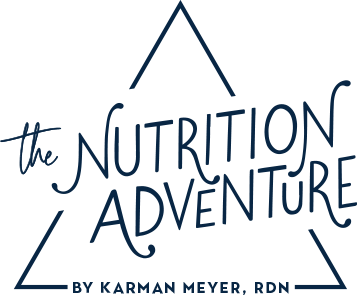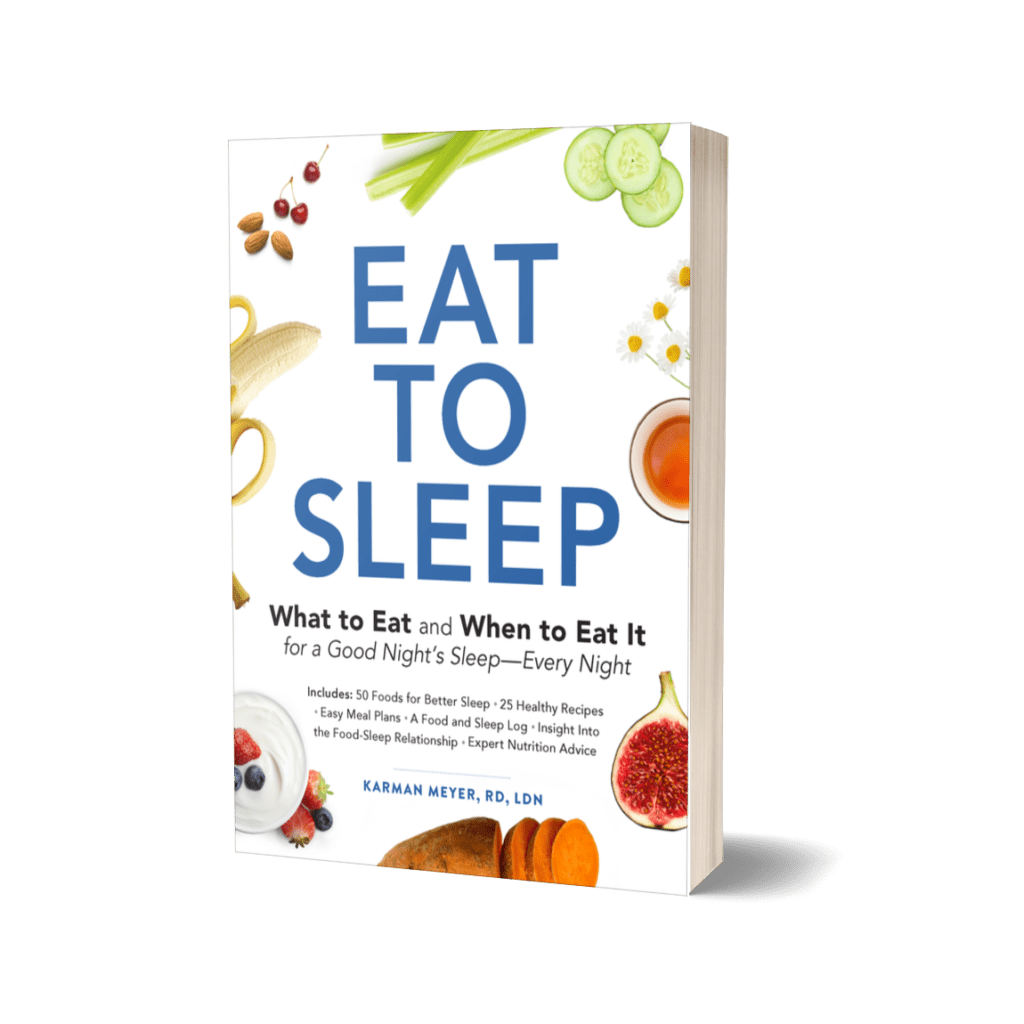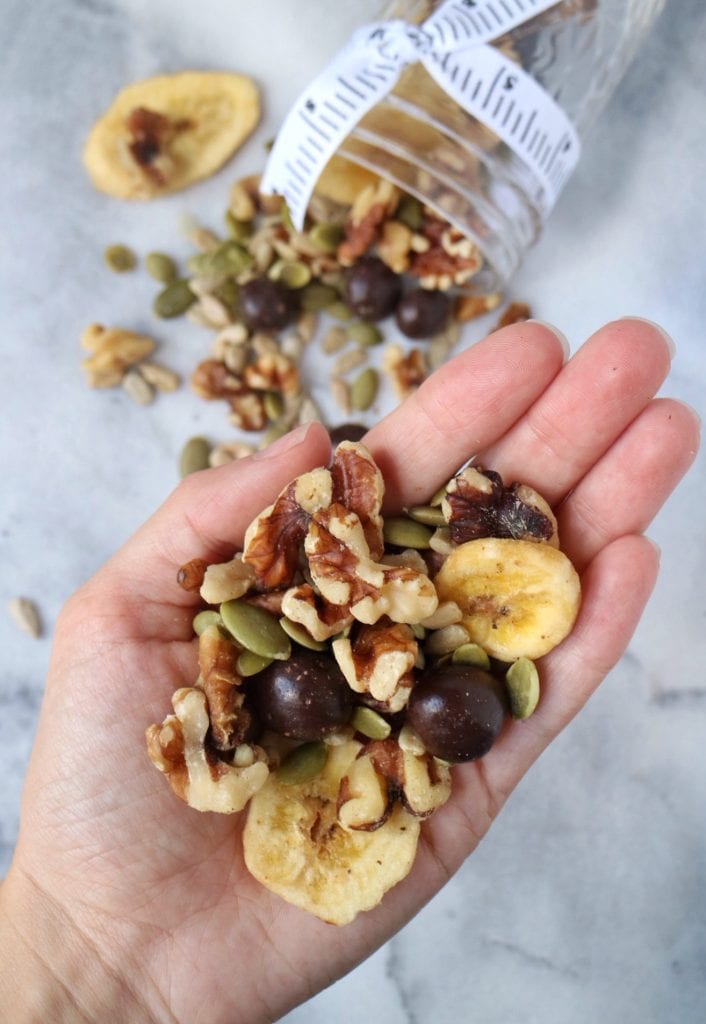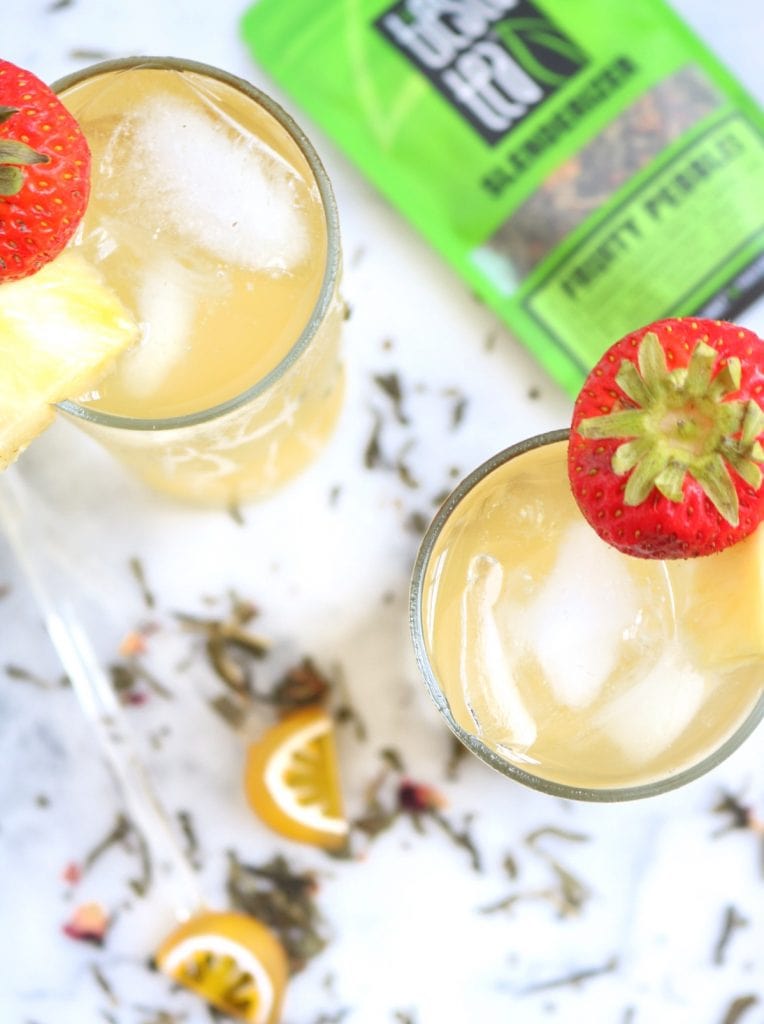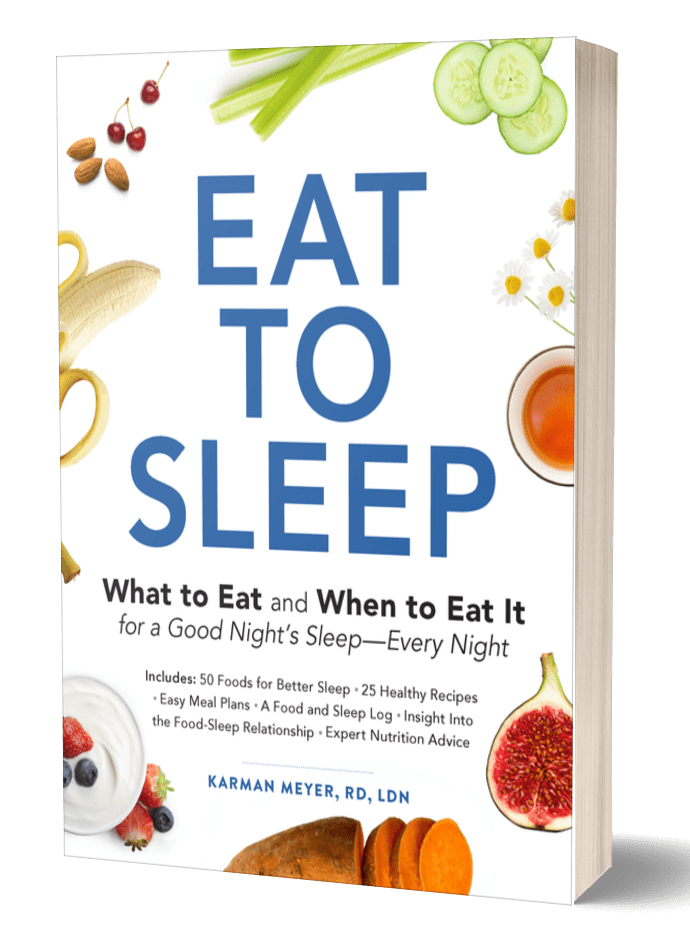5 Ways Food Is Impacting Your Sleep
We eat for nourishment, growth, socialization, and sometimes just for pleasure. But have you ever considered that what you eat and when you eat it can play a role in how well you sleep at night?
With the official release date of my first book quickly approaching, I thought it would be fun to give you all a sneak peek into some of what the book will include with this article on 5 Ways Food Is Impacting Your Sleep. While this article will cover a few ways food may be affecting your sleep cycles, the book goes into depth on the subject and you’ll also learn about and receive:
- 50 foods that can help improve your sleep
- 25 healthy recipes that incorporate sleep-benefiting foods
- A food and sleep log to help you track your progress
- Nutrition advice from a Registered Dietitian
Let’s take a look at 5 Ways Food Is Impacting Your Sleep…
#1 Excess Sugar, Not So Sweet for Sleep
While you may be familiar with how excess refined sugar intake can be bad for the waistline, it’s less commonly discussed the effect sweets have on getting that sweet night of sleep. The more sugar consumed during the day, the more likely you are to wake up in the middle of the night due to fluctuating, unstable blood sugar levels. Rather than snacking on chips, sodas, candy, and other sweet treats, choose whole fruits and whole grain snacks (like popcorn!) to satisfy a sweet or salty craving. The fiber in fruits and whole grains allow for slower absorption of glucose into the bloodstream.
Enjoy this trail mix made with banana chips, raw pumpkin seeds, walnuts, sunflower seeds, and chocolate-covered blueberries for a satisfyingly sweet but balanced snack option during the day.
#2 Going to Bed on a Full Belly
Having too much food in your stomach when going to bed can make it uncomfortable for sleep and if you’re prone to acid reflux, you may experience symptoms once you lie down in bed. Americans tend to eat the largest amounts of food and most calories at dinner time, whereas many other cultures enjoy lighter evening meals. To avoid over-consumption of food at any meal, remember to take your time while eating to aid in optimal digestion and be mindful of appropriate portion sizes to meet your individual dietary goals. ChooseMyPlate.gov is an excellent tool to learn about common portion sizes of foods and how to create a healthy, balanced plate.
#3 Alcohol Inhibiting Deep Sleep
A glass of wine or beer while preparing dinner or while watching your favorite show at night may sound relaxing but it can hinder you from entering the deep, restorative stages of sleep. Not something you want to miss out on! And if you’ve been known to snore, alcohol can actually make it worse. The best way to find out if alcohol may be the cause of restless night? Cut it out for two weeks (at least during the work week to start!) and see if you begin to wake up feeling more rested in the morning.
#4 Too Much Caffeine
That afternoon coffee or energy drink, or even caffeinated sodas or teas before bed, may be interfering with your Zzz’s at night. Caffeine is a stimulant but it affects everyone differently so if you’re trying to solve your sleep woes, take a look at how much caffeine you consume during the day. The recommended daily limit for caffeine is 400 milligrams and it’s best to cut off consumption of the stimulant at least 8 hours before your usual bedtime. Keep in mind that if you’re dependent on caffeine to get through the day, it may be time to consider the foods you’re consuming on a daily basis to ensure they are providing your body with the energy it needs, rather than relying on a stimulant. When we eat a balanced, nutritious diet a consistent basis, our body’s will have to essential nutrients they need to perform!
Try a caffeine-free tea or tea with low levels of caffeine, like green tea, in place of coffee or energy drinks in the afternoon. This Fruity Green Tea Sprtizer is refreshing and provides cell-protecting antioxidants!
#5 The Power of Potassium
In my book, Eat to Sleep, I cover several nutrients that play a vital role in getting a good night’s sleep and potassium is one of them that, according to the 2015-2020 Dietary Guidelines for Americans, many Americans are not getting enough on a daily basis. Potassium is important for muscle contraction and easing muscle cramps, blood flow, and regulating fluid and mineral balance, and it’s recommended that adults consume 4,700 milligrams a day, nearly double what most adults are actually consuming. To boost your potassium intake, enjoy more cooked spinach, baked potatoes, cantaloupe, tomatoes, bananas and milk.
Do you struggle with getting a solid 7-8 hours of sleep at night? Did you know foods could play a role in improving sleep cycles and even alleviate anxiety? Would love to hear your thoughts and comments on the topic!
